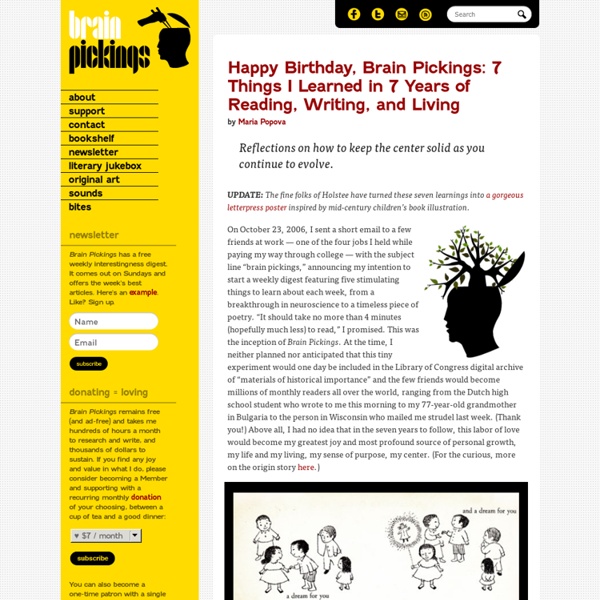Happy Birthday, Brain Pickings: 7 Things I Learned in 7 Years of Reading, Writing, and Living

Escape Your Shape: How to Work Out Smarter, Not Harder - Edward J. Jackowski, Edward Jackowski
The Individualized Fitness Prescription for Your Body Type Do you wonder why the latest fitness fad doesn't work for you? Have you lifted weights for months, dreaming of toned, defined muscles, with no results? Have you exercised regularly for months -- or even years -- without seeing any changes in your body? If you answered yes to any of these questions, chances are your exercise routine is incomplete and wrong for your body type. Everyone -- men and women alike -- has a natural shape: Hourglass® Spoon® Ruler® Cone® And there's a right and a wrong way to exercise for each. You don't need to buy expensive equipment or devote hours a day to this program.
Related:
Related:



